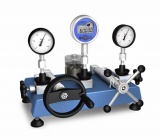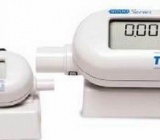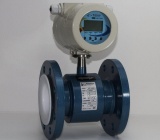MASS / WEIGHT CALIBRATION SERVICES

Contents
- Mass/Balance Calibration
- Why Should Weights /Balance be calibrated?
- Calibration equipments
- Standard used
- Dong Tam's Mass/Balance Calibration Services
See also: Onsite calibration service at customer's factories.
Balances or scales are widely used in various industries for measuring the mass of different objects. They come in a range of sizes and accuracy classes to suit different needs. Laboratory balances are designed to measure small masses in the sub-gram range with high precision. On the other hand, industrial scales are built to handle much larger masses. These can range from small bench scales used in manufacturing and processing, to large truck scales used in transportation and logistics.
1. Mass/ Balance Calibration
As with any measuring instruments, balances/scales must be calibrated regularly to ensure that they perform accurate measurements. Periodic calibration is the appropriate and only way to monitor their accuracy throughout use.
Mass/balance calibration involves comparing the actual readings of a scale with the known value of a standard weight placed on the scale's plate. This process determines the accuracy of measurements, the difference between the measured value and the true value of the standard weight, also known as the error or tolerance limit. This error serves as a basis for evaluating or affirming whether the equipment meets the required standards.
2. Why Should Weights /Balance be calibrated?
Weights/ balance calibration is crucial for businesses in various industrial production sectors. It offers numerous benefits and is necessary for several reasons.
The accuracy of a balance/scale is paramount as it not only influences the quality of processes and services but also directly impacts the reputation of a business or organization.
Over time, a balance/scale’s accuracy diminishes and becomes less dependable. This degradation is often due to the frequent usage of the device, leading to the wear and tear or breakage of internal components. External factors such as mechanical shocks or hazardous environments can also contribute to the rapid deterioration of weighing equipment. However, regular calibration in conjunction with frequent maintenance can enhance the lifespan and accuracy of a balance/scale.
Weights/ balance calibration at licensed entities will bring several benefits:
- Ensuring Accuracy: It ensures that the equipment provides accurate information, controlling the consumption of raw materials in the industrial production process. This improves production efficiency, saves costs, avoids waste, rework or product recall, thereby maintaining the enterprise’s reputation.
- Linking Measuring Instruments: It links measuring instruments to measurement standards to ensure the uniformity and accuracy of the measurement, ensuring that results from all weighing equipment in the process are accurate and reliable.
- Facilitating Assessments: It facilitates your business in passing internal and external assessments.
- Identifying Measurement Deviations: It identifies whether the measurement results of mass have deviations, creating fairness in trade between parties, where no party benefits financially from measurement errors at the expense of the other.
- Early Detection of Equipment Issues: It detects early if the equipment does not ensure quality or is damaged to take timely repair or replacement.
3. Calibration equipments

Calibration weights / Set of weights
Calibration weights, ranging from 1 milligram to hundreds of kilograms, are classified into various accuracy classes such as E2, F1, F2, M1, and M2. These weights are frequently used for the calibration and verification of various types of scales, including analytical balances, technical scales, and platform scales,.... Their use is especially common in laboratory settings

Analytical balances
Analytical balances are a specific type of electronic balances that offer a high level of precision, with a resolution extending to 4 or 5 decimal places. These balances are made to measure at very small scales with extremely small errors, making them the perfect choice for tasks that demand highly accurate measurements. Their use is widespread in various sectors such as biology, chemistry, and electronics laboratories,...
.

Technical balances
Technical balances are a type of electronic scale used in fields requiring high precision. They are classified under accuracy classes of Class II or Class III. These balances are commonly utilized in weighing precious metals and gems, as well as in the manufacturing of small-weight devices such as electronic components and accessories

Platform scales
Platform scales are a type of weighing scale that is designed to handle large-weight, bulky items. They are commonly used in various industries, such as production, packaging, warehouse storage, transportation, and delivery.
.

Bench weight scales
Bench weight scales are commonly used in various settings such as homes, stores, supermarkets, and offices due to their portability and flexible size. With a maximum weight capacity of 30kg, they can handle a wide range of items, making them ideal for tasks like packaging and general weighing needs.

Spring dial scales
Spring dial scales are a popular type of scale used in daily life. They are highly convenient and much cheaper than electronic scales. These scales come in two types: tabletop and hanger, and they usually have an accuracy class of class IIII and their capability of weighing up to 200 kg. (according to OIML R76-2006).
4. Standards used
Standard Calibration Weight Set of (1 - 500) mg, Class E2
Standard Calibration Weight Set of (1 - 500) g, Class E2
Standard Calibration Weight Set of (1mg - 500g), Class F1
Standard Calibration Weight Set of 20 kg, Class M1
5 kg Calibration Weights, Class M1
10 kg Calibration Weights, Class M1
1 kg Calibration Weights, Class F1
2 kg Calibration Weights, Class F1
5 kg Calibration Weights, Class F1
10 kg Calibration Weights, Class F1
20 kg Calibration Weights, Class F1
5. Dong Tam's Mass/Balance Calibration Services
Balance/Mass calibration is crucial for businesses in all manufacturing sectors. This process ensures the most accurate and reliable weighing results, essential for maintaining quality control and meeting industry standards. Regular and periodic calibration can also help detect early damage, enhance usage time and maintain the accuracy of the balance/scale.
We are committed to providing our customers with::
- Calibration services are accredited to ISO/IEC 17025:2017 standards.
- The lab's temperature and humidity are strictly controlled to meet calibration requirements.
- Onsite calibration: Our onsite calibration service is designed to save customers time and costs, with calibration results as precise as laboratory calibration.
- Well-trained Calibration technicians work under our rigorous internal procedures and fulfill customer-specified requirements for each order, whether in customer's location or laboratory.
- We offer timely, accurate, and effective services. Our calibration certificates are user-friendly, providing reports on measurement results and errors. Calibration certificates are securely archived in our system and can be quickly retrieved through the Certificate Information Lookup Portal on our website.
To consult and request for quote on our Mass/Balance calibration services, please kindly contact us via the following information:
LABORATORY: DONG TAM MEASUREMENT AND TECHNICAL TRADING SERVICE CO., LTD
ADDRESS : No.57-59 Street 11, Binh Hung Residential Area, Binh Hung Commune, Binh Chanh District, Ho Chi Minh City
TEL: 028 375 83 869 - Hotline: 0909 347 891 (Mr. Lâm)
Email: info@dongtam-mes.vn























 Legal
Legal  Call: 0283.7583869
Call: 0283.7583869  Search for Certificate
Search for Certificate  Contact
Contact